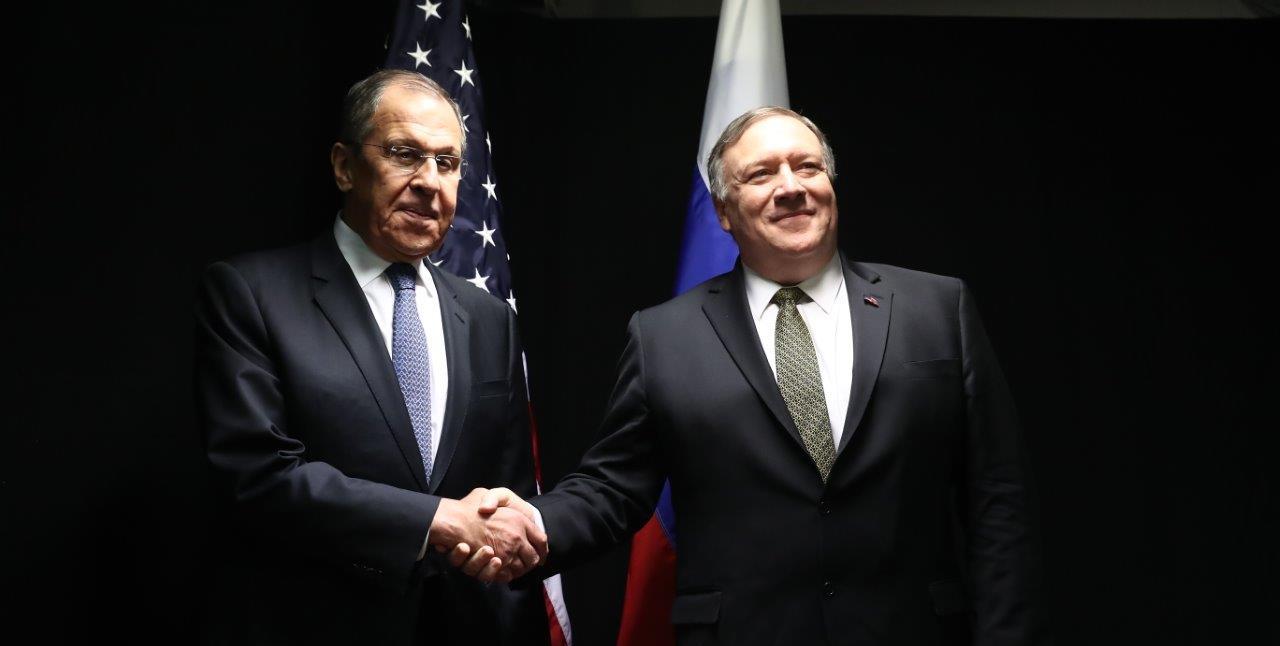Russia will go to considerable lengths, for example, to block any further enlargement of NATO and to build up its leverage in the Middle East. With trade, diplomatic, and humanitarian contacts so eroded, Moscow sees little to lose in the U.S.-Russian relationship, and so will be more likely to intrude into domestic American politics to increase social friction and deepen internal cleavages in the United States. At the same time, Russia’s sluggish and vulnerable economy could limit its capacity for bold, costly international advances in the future, including major military power projection beyond its immediate post-Soviet periphery.
Russia will never be irrelevant to American interests. Nor can it be made subservient to them. Moscow cannot be bludgeoned into compliance with anyone else’s values or notions of world order, and Russians will not accept involuntary isolation from the Euro-Atlantic civilization of which they have always been a part, and which they have helped to shape and preserve. For Americans, Russia should be made less foreign, with all the irritations and all the benefits of connection. However unavoidable, conflict should be contained and balanced against cooperation. Russia, our third neighbor, must be a country with which the United States can manage to live.
Russia will go to considerable lengths, for example, to block any further enlargement of NATO and to build up its leverage in the Middle East. With trade, diplomatic, and humanitarian contacts so eroded, Moscow sees little to lose in the U.S.-Russian relationship, and so will be more likely to intrude into domestic American politics to increase social friction and deepen internal cleavages in the United States. At the same time, Russia’s sluggish and vulnerable economy could limit its capacity for bold, costly international advances in the future, including major military power projection beyond its immediate post-Soviet periphery.
Little of the foregoing portends disaster for the United States. The challenges from Russia can be handled, but only if they are first understood. Doing so demands substantially more, and more sustained, national investment in Russian expertise than Americans have made since the end of the Cold War. As the United States has embraced a posture of increased conflict with Russia — first in defense of the “liberal international order” and more recently under the banner of “great power competition” — a generation and a half of young Americans have encountered dwindling opportunities to study Russia. A U.S.-Russian relationship in which one side speaks one language and the other speaks two languages will not benefit the United States. This shortcoming of preparedness can be reversed at relatively modest cost, less than the cost of producing and maintaining a single new nuclear missile, though it will take a decade or more for the improvement in U.S. academic expertise and policy analytical capacity to register fully.
As in the Cold War, American strategy should seek to shape the image of the United States held by our Russian neighbor. Resources stripped from cultural diplomacy and people-to-people engagement during recent years of intentional mutual isolation must be restored. The dismal view of the United States shared by most Russians stems to a large degree from Kremlin propaganda, but younger Russians are increasingly indifferent to state-controlled television, and would surely welcome expanded opportunities for travel or even virtual exchange with Americans. These contacts can be focused on partnership in areas of obvious common interest, including climate change, the Arctic, space exploration, pandemic disease and disaster response, and the common aspirations of ordinary people on both sides for greater security and prosperity in their individual lives.
U.S. policymakers, experts, and journalists must stop relegating Russia to Churchill’s caricature of riddle-mystery-enigma or to that of a Cold War bête noir. Both are clichéd, and neither is helpful. Instead, Americans should not hide Russia behind an iron curtain or bottle it up behind a wall of its own making. Washington should make the psychological shift to seeing Russia as the third neighbor now.
Already Russia is actively pursuing closer alignment with China while asserting its interests globally. This makes Russia a critical variable for U.S. foreign policy, from Latin America to the Middle East and from Europe to East Asia. Russia has the potential to augment a growing U.S.-China rivalry, either by aiding China or by exploiting collisions when they occur. Yet were it so inclined, Russia could help contain or at least complicate China’s rise to regional hegemony in Asia or, down the road, to global hegemony.
As the United States contemplates Russia as the third neighbor, it will have much to learn from its relationships with the two familiar neighbors, Mexico and Canada. Canada and Mexico lack Russia’s long history of invasions from east and west, and they avoid the kind of crusading, expeditionary foreign policy that is second nature for both Russians and Americans. Yet in the relationships among Canada, Mexico, and the United States are all the ingredients of competition and conflict. They have still managed to find their way to a stability in relations that helps each more than it harms them. Extreme, destabilizing policies are generally held in check; close ties and mutual understanding are cultivated. None of this happens by accident. It is the achievement of leaders and societies that recognize the realities of a common neighborhood.
Russia will never be irrelevant to American interests. Nor can it be made subservient to them. Moscow cannot be bludgeoned into compliance with anyone else’s values or notions of world order, and Russians will not accept involuntary isolation from the Euro-Atlantic civilization of which they have always been a part, and which they have helped to shape and preserve. For Americans, Russia should be made less foreign, with all the irritations and all the benefits of connection. However unavoidable, conflict should be contained and balanced against cooperation. Russia, our third neighbor, must be a country with which the United States can manage to live.
First published in The National Interest.






